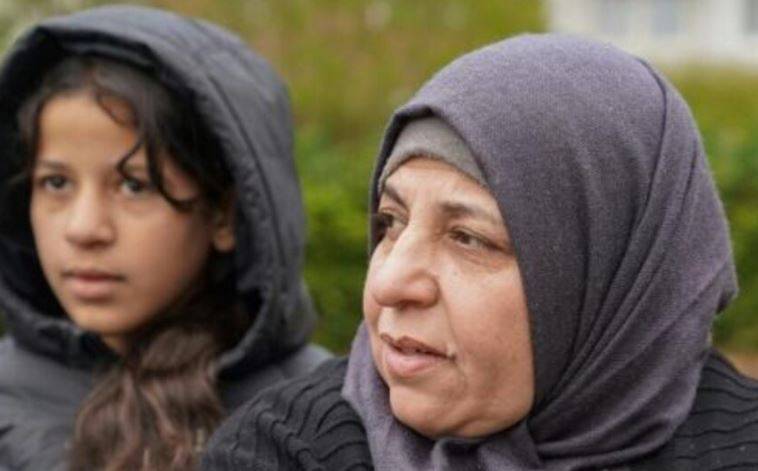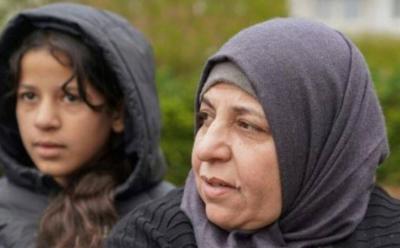Despite international criticism, hundreds of Syrians are denied residency papers in Denmark, which now considers the situation in Damascus and the surrounding area as "safe." Sabriya Al-Fayyad, originally from the Syrian capital, says, "I fear returning to Syria and fear the regime that killed my husband and brother." At the end of March, this mother was asked to leave Denmark with her two minor daughters, while her sons can remain as they face the risk of conscription in the Syrian army. The woman in her forties explains in her apartment in Vejle, western Denmark, "I fear being arrested and questioned about where my sons are, as they have to serve in the military." She is undergoing treatment for post-traumatic stress disorder and is quietly learning Danish. She worries about the fate of her daughters, Shahd, who is ten, and Tasneem, who is twelve, as they have completed their education entirely within the Danish educational system and only speak Arabic verbally. The mother anxiously asks, "If I am arrested, who will take care of them?" Her family reports that their home in Damascus was bombed.
Like Sabriya, who received her residency in Denmark in 2016 due to the general situation in Syria, at least 200 Syrians have been denied residency papers since the summer of 2020, following Copenhagen's decision to reassess 500 cases on the grounds that "the current situation in Damascus no longer justifies granting or extending residency." This is a precedent in a European Union member state. After his father’s death in Syria, Abdo became the family provider, being the first of his family to reach Denmark in 2014, later joined by his brother, mother, and sisters. Since this administrative decision was issued, he has been struggling to keep the family together. The 27-year-old, who married recently, says, "The immigration authorities did not consider that we are a family. I took care of my sisters; they grew up with me; I am like a father to them."
Abdo, a maintenance worker, would never have imagined this situation. However, successive Danish governments continue to tighten immigration policies, supported by public opinion and a majority of political factions. Lawyer Daniel Norung explains, "There was a change in 2019; we began to inform refugees that they are here temporarily and must return one day." Mette Frederiksen has been leading the government for two years with a declared goal of completely eliminating asylum cases, which is a hardline stance for a left-wing party like her Social Democrats, determined to attract right-wing votes. Rasmus Stoklund, the party’s spokesperson on immigration, justifies this by saying, "We have a shortage of job opportunities, a high crime rate, and cultural differences. We cannot exacerbate our problems."
Since reading the letter that denies him residency, Muhammad, who wants to become a doctor, has felt lost. The 18-year-old explains in Danish, "I go to school and behave properly, and I see this as unfair." Lawyer Norung states that most of his clients opposing the decision live under the threat of deportation for a year before knowing their final fate. In almost half of the cases, the judiciary overturns the initial decision.
Despite numerous criticisms from the United Nations, the European Commission, and non-governmental organizations believing that recent improvements in some areas of Syria do not justify halting refugee protection, Denmark intends to maintain its stance. Last week, the parliament wide majority approved a declaration supporting this decision, despite the emergence of a movement advocating for Syrians in the country. Stoklund states, "With many parties viewing the situation in the Damascus area as stable (...), there is no reason to prevent people who are not at risk of personal persecution from returning." Abdo asserts that this situation is intolerable. He affirms, "When it is said that Syria is a safe country while all the world says otherwise (...), this is a lie."
Legally, temporary residency is granted "in case there is a very dangerous situation in the home country characterized by arbitrary violence and attacks on civilians." It can practically be revoked when the situation improves. However, no one can be forcibly deported in the absence of relations with President Bashar al-Assad's regime; individuals whose residency has been revoked are asked to leave the country voluntarily or placed in an administrative center. Approximately 35,500 Syrians live in Denmark, over half of whom arrived in 2015, according to the national statistics institute.




